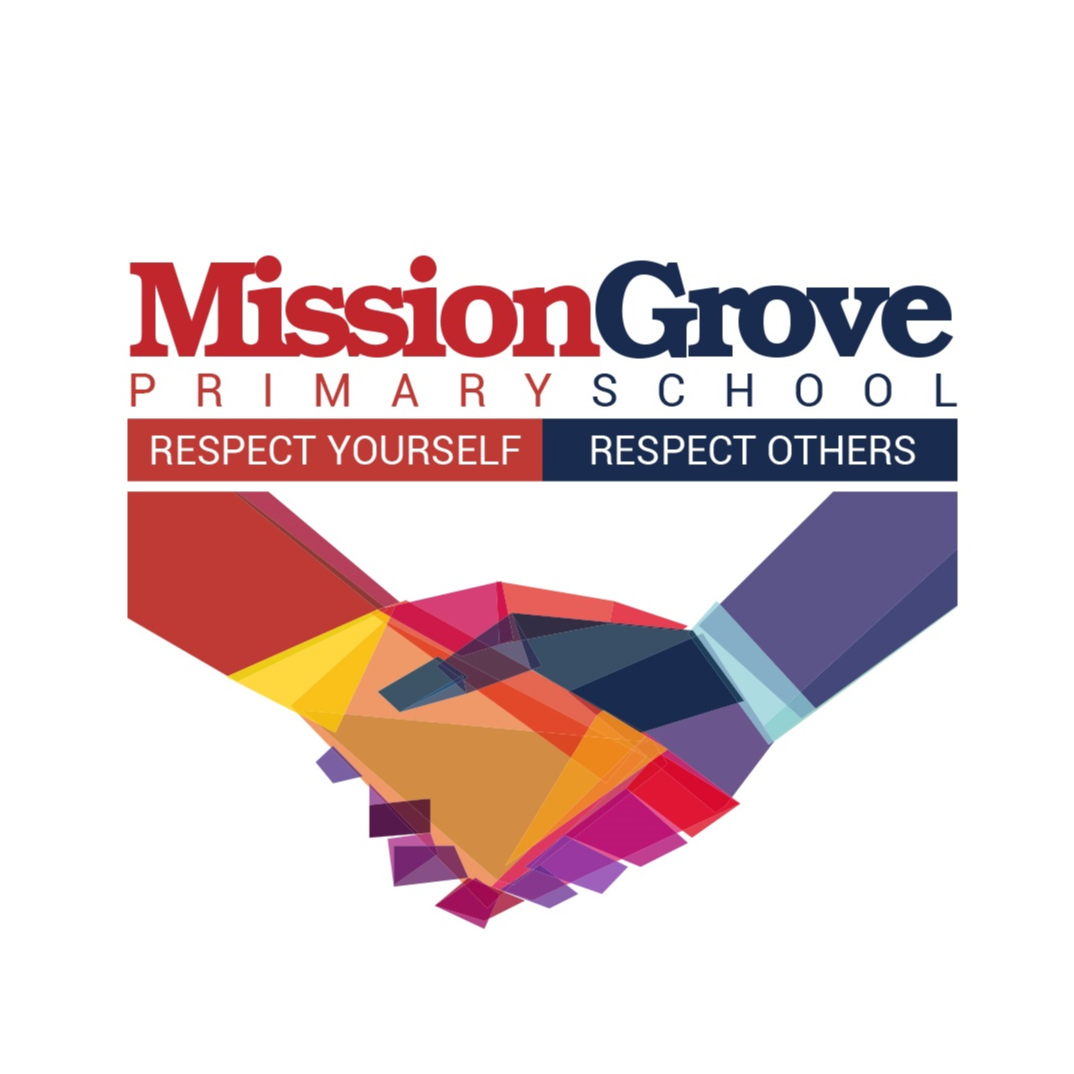English
Summer 1
This week we have been describing forests, the plants and the animals that live in them. We have worked hard to use our senses and expanded noun phrases - adjective, adjective, adjective noun. Some of us are adding extra information using that and which.
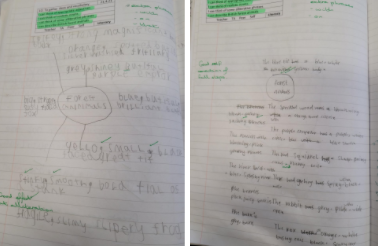
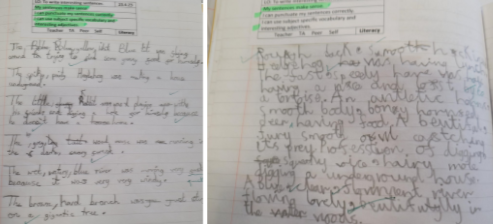
Why don't you remind yourselves what nouns, adjectives and verbs are
and how to create expanded noun phrases.
This week, we have learnt about the story of Hansel and Grettle. We used this story to help us create our own fairy stories set in the forest.
First, we used talk for writing and planned the characters, beginning, middle and end of our story.
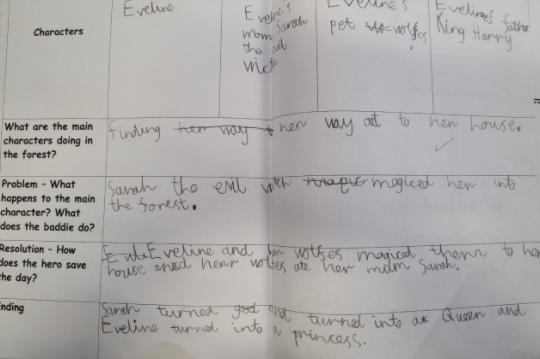
Next, we used Lego to create our setting, character and act out our story.
Then we created a storyboard of our story. We tried to include detail and focussed on the different events of our story.
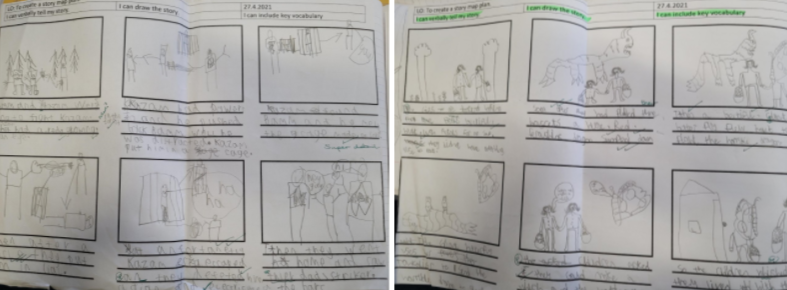
Finally, we wrote our forest fairy stories. We paused at different points so we could read our work to our partner and they could help us self assess our writing.
We worked really hard to make sure that our sentences made sense and used capital letters and full stops. It is sometimes tricky to know when to start a new sentence.
This week we started our new story - The Tin Forest.

We read the first page of The Tin Forest, closed our eyes and imagined what it would look like. We then drew what we visualised and described it.
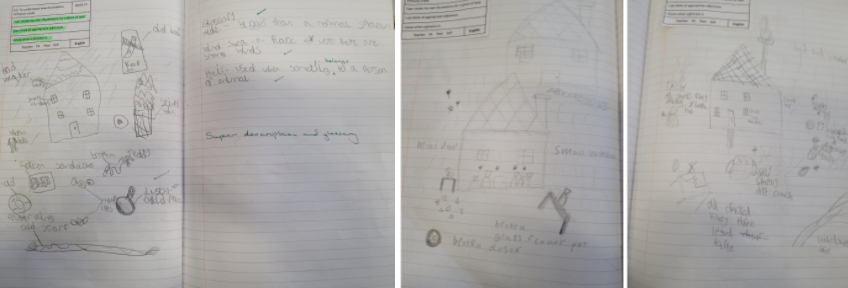
Then we read about what the old man does and discussed the illustration of him. We described his appearance, actions, personality and what we think his likes and dislikes will be. When we described him, we tried to explain what part of the story or drawing tells us this.
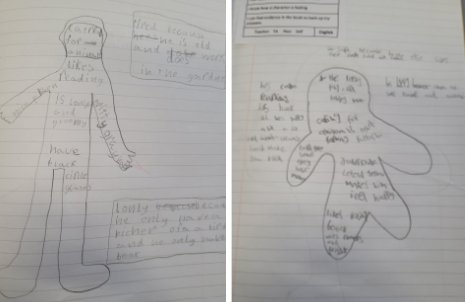
We have also been learning about the homophones there, their and they're.
Autumn 1
During our first week of term, we read the book Here We Are and created guides of our school for new children.
We have also researched and created information booklets about our class bird - the goldcrest.
This half term, we are reading The Legend of the Golden Snail.
We have been practising using our capital letters and question marks.
We have created expanded noun phrases using adjectives in front of nouns e.g.big, bouncy, blue ball.
When doing this, we are trying to use commas between the adjectives.
We have also been learning about prefixes and suffixes and have had fun dancing and singing our song.
We have been retelling parts of the Legend of the Golden Snail story using time connectives and conjunctions.
We have learnt about feelings and discussed how characters could be feeling based on what is happening in the story. We are trying to use some WOW words. Instead of Wilbur feeling sad, he could be depressed or glum. We are using the events of the story to make predictions about what will happen next.
We have been practising skimming and scanning to find words. This helps us when we are doing reading comprehensions.
We have been practising identifying nouns, adjectives and verbs.
We have added expanded noun phrases to sentences and are trying to use commas between the adjectives.
We have used expanded noun phrases and our senses to describe the Golden Snail and other imaginary animals.
After we finished reading The Legend of The Golden Snail, we planned and wrote a sequel.
With our partner, we looked through our work and tried to edit it. We spotted missing full stops, capital letters and spelling mistakes and improved our adjectives.
We are learning how to summarise or say the main events of a story in our own words. It is important that when we summarise we answer the questions who? where? when? what? why?
how?
We summarised some myths from different UK countries including the story of the giant Finn McCool.
Why don't you watch this story and summarise the main events?
We have been learning about similes and using them in poems.
Autumn 2
During this half term, we will be reading a number of books about The Great Fire of London. Why don't you listen and read along to this fictional story based on The Great Fire of London?
We have been learning about the different types of questions we get asked when we read and how to answer them.
We have also been learning about onomatopoeia and prepositions.

We have tried to use these in poems along with our previous expanded noun phrase learning to write poems about fireworks.
After setting fire to our Tudor houses, we will write a recount about it.
